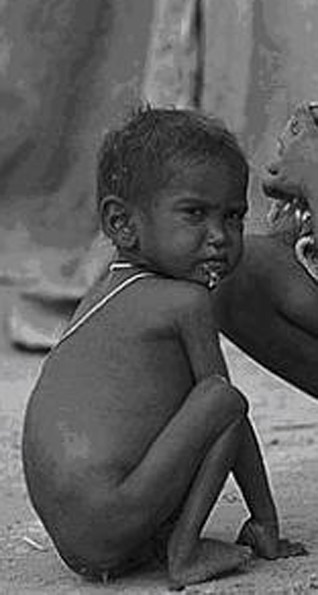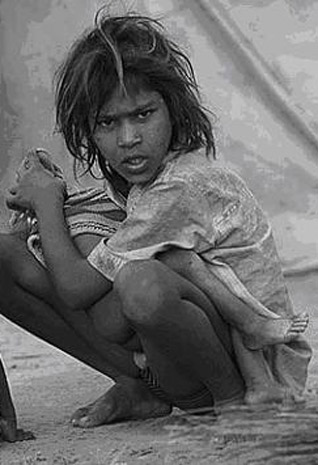Columnists
Of the People ... By the People,
But Not Quite For All the People
SARBPREET SINGH
The sixty-seventh Independence Day of the India, the ‘largest democracy in the world,’ is ushered in with effusive messages from presidents and potentates.
They gush about the nation’s technological prowess. With a complete absence of irony, they laud its attachment to traditional values and spirituality even as they salivate at the prospect of never ending mutual commerce driven by the tsunami of lust for all things material that washes over this bastion of detachment. They make flattering references to the nation’s increasing prestige and influence in the world.
One of the most unctuous messages is the one from Vladimir Putin of Russia, that well known champion of democracy and liberty in his own nation!
Dr. Manmohan Singh’s speech on the occasion, as always from the ramparts of the Red Fort in Delhi, makes for interesting reading.
It is hard to say whether the good Prime Minister, who is clearly a super intelligent, highly educated man; nay an intellectual, speaks in the thrall of the Nehru dynasty, at whose pleasure he serves, or whether he has simply turned into just another Indian politician, protecting his own and his party’s interests, as he begins with slavish homage to first Jawaharlal Nehru, then Indira Gandhi and finally Rajiv Gandhi. Then he proceeds to deliver the following gem, the aforementioned irony still MIA:
“I believe that the last decade has also been a decade of major changes in the history of our nation. In no other decade has our economic development increased as much as in this decade. Democratic forces have been strengthened and many sections of our society have joined the mainstream of development for the first time. The common man has been given new rights which have led to his social and economic empowerment.”
A bit of deconstruction, is perhaps in order.
In an article in the New York Review Of Books, Nobel Prize winning economist Amartya Sen makes some interesting observations about the economic development that Dr. Manmohan Singh proudly points to. His thesis may be summarized as follows: India has indeed enjoyed significant economic growth in the last decade, but the benefits have been reaped by a very small minority with hardly any improvement in the lives of most Indians; lack of broad progress in education, basic health and life expectancy makes the growth in Gross National Product seems rather hollow.
Dr. Sen‘s draws a comparison between India and China, whose GNP growth rate India is approaching, which further reinforces his argument.
Life expectancy at birth in China is 73.5 years; in India it is 64.4 years.
The infant mortality rate is 50 per 100 in India, compared with just 17 in China; the mortality rate for children under the age of five is 66 per 100 for Indians … and 19 for the Chinese; and the maternal mortality rate is a stunning 230 per 100,000 live births in India … and 38 in China.
The mean years of schooling in India are estimated to be 4.4 years, compared with 7.5 years in China.
China’s adult literacy rate is 94 percent, compared with India’s 74 percent.
Dr. Sen’s conclusion, in his own words, should be food for thought for those who singularly focus on India’s GNP growth while conveniently ignoring how the nation is spending its new found wealth:
“Yet an exaggerated concentration on the lives of the relatively prosperous, exacerbated by the Indian media, gives an unrealistically rosy picture of the lives of Indians in general. Since the fortunate group includes not only business leaders and the professional classes but also many of the country’s intellectuals, the story of unusual national advancement is widely and persistently heard. More worryingly, relatively privileged Indians can easily fall for the temptation to focus just on economic growth as a grand social benefactor for all.”
After understanding the extent to which the ‘common man’, much celebrated in Dr. Manhohan Singh’s remarks, has benefited from the great miracle of India’s recent economic development, let us now turn our attention to the ‘new rights’ he has purportedly won and his alleged ‘social empowerment’.
Let us first turn our attention to the ‘common man’ of the female persuasion, whose well-being, one would think, would be a rather important component of the nation’s progress, as claimed by Dr. Manmohan Singh.
According to the United Nations Development Program’s Human Development Report (UNDP) published in 2013, India ranks 132 out of 187 countries on the gender inequality index – lower than Pakistan (123), lower than Bangladesh (111), lower than Nepal (102) and much lower than Sri Lanka (75). The only country in South Asia, where women are worse off, is Afghanistan.
Yes, India is slightly better than Afghanistan!
I think it’s quite clear that the self-congratulatory rhetoric is a bit premature!
The chapter on India in the 2013 Human Rights Watch Report (HRW) begins thus:
“India, the world’s most populous democracy, continues to have significant human rights problems despite making commitments to tackle some of the most prevalent abuses. The country has a thriving civil society, free media, and an independent judiciary. But longstanding abusive practices, corruption, and lack of accountability for perpetrators foster human rights violations. “
The report, in particular points to the impunity with which security forces continue to perpetrate abuses wherever there is any hint of dissent or civil disobedience.
As a Sikh, thirty-nine years after the horrors of the Delhi Pogrom perpetrated by the leaders of the same Congress Party that Dr. Manmohan Singh serves, I do not have to read the HRW report to understand the import of this impunity for the ‘common man’.
Slogans and shibboleths are fine and the occasional use of self-congratulatory rhetoric is after all, de rigueur in politics. The problem is that if Dr Amartaya Sen is correct or if one pays attention to the UNDP and HRW reports, the divergence between the happy talk of India’s leaders and the stark reality on the ground is just too disconcerting.
The leaders of the ‘largest democracy in the world’ need to be a little more introspective in my opinion. Perhaps Independence Day would have been an appropriate occasion.
August 18, 2013




